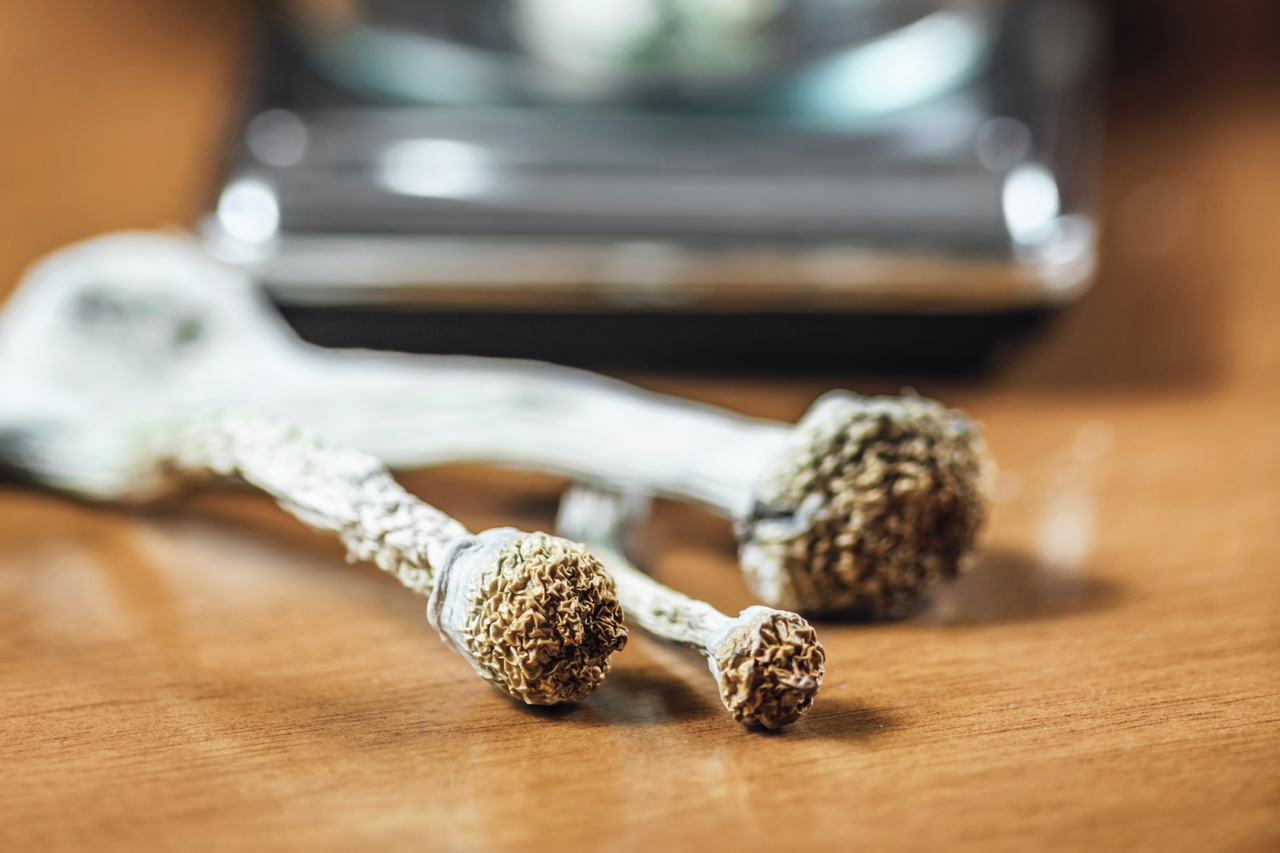 BY Samuel Mathis, MD, Assistant Professor, UTMB, and Eldin Nikocevic, MS4, Family Medicine, UTMB
BY Samuel Mathis, MD, Assistant Professor, UTMB, and Eldin Nikocevic, MS4, Family Medicine, UTMB
Psychedelics are a class of drugs that have recently regained attention for their potential therapeutic effects on a range of mood disorders. Among them, psilocybin, the active ingredient in “magic mushrooms,” is currently gaining attention for its potential to treat depression. The substance produces profound changes in perception, mood, and cognition, often inducing hallucinations. While psilocybin has a long history of use for religious and recreational purposes, research on its therapeutic  effects began in the 1960s and was abruptly halted by the classification of all psychedelics as Schedule 1 substances by the US government in 1973. Nonetheless, the last decade has seen a resurgence in research on the therapeutic potential of psilocybin.
effects began in the 1960s and was abruptly halted by the classification of all psychedelics as Schedule 1 substances by the US government in 1973. Nonetheless, the last decade has seen a resurgence in research on the therapeutic potential of psilocybin.
In a recent randomized controlled trial, patients with the major depressive disorder who received psilocybin-assisted psychotherapy experienced significant reductions in depressive symptoms compared to a control group [1]. Furthermore, psilocybin has been shown to be effective in reducing anxiety and depression in patients with life-threatening illnesses [2]. The study showed that patients had significant reductions in anxiety and depression symptoms for up to six months after treatment [2].
One of the most significant advantages of psilocybin is its relatively rapid onset of action compared to traditional antidepressant medications. In the study mentioned above, the participants experienced significant reductions in depressive symptoms within one week of treatment. Additionally, the effects of psilocybin have been shown to last for an extended period, with the participants in the study continuing to show improved symptoms for up to six months after treatment [1].
The mechanism by which psilocybin exerts its therapeutic effects in treating depression is not yet fully understood. It is believed that psilocybin works by stimulating the growth of new brain cells and neural pathways in the brain. One way it works is by possibly increasing the production of a neurotransmitter called brain-derived neurotrophic factor (BDNF), which is known to be involved in the growth and development of neurons [3]. Furthermore, psilocybin has been shown to promote a state of mind characterized by openness and connectedness, possibly through affecting levels of dopamine in the brain [1].
While research on the therapeutic potential of psilocybin is still in its early stages, the findings so far suggest that psilocybin may be a promising treatment for depression and other mood disorders. In addition, psilocybin therapy may be beneficial for patients who have not responded well to traditional antidepressant medications. However, it is important to note that the use of psilocybin in clinical settings must be approached with caution. The limitations thus far include the relatively small sample sizes in research studies and lack of standardized dosing. As such, it is difficult to compare the results of different studies and develop standardized guidelines for psilocybin therapy.
While psilocybin is generally considered safe, it can have adverse effects and may be harmful in certain situations. Patients considering psilocybin therapy should work with trained professionals in a controlled environment and prioritize safety. Some potential adverse effects of psilocybin include anxiety, paranoia, and hallucinations. These effects can be particularly intense if the patient has a pre-existing history of mental health conditions or is taking other medications that interact with psilocybin. It should go without saying, but patients should not purchase their own source of psilocybin. Treatment is still in the research phase and not yet allowed in medical settings.
Psychedelics have the potential to be effective in the treatment of mood disorders such as depression and anxiety. Further research is needed to fully understand the safety and efficacy of these substances in treating mental health conditions. With proper precautions and guidance, however, psychedelics may offer a new avenue for treating individuals who suffer from treatment-resistant mood disorders. As the research in this area continues to expand, it is important to remain cautious but also open to the possibility that psychedelic therapy could become a powerful new tool in the treatment of mental health conditions.
Works Cited:
- Carhart-Harris, R. L., Bolstridge, M., Rucker, J., Day, C. M. J., Erritzoe, D., Kaelen, M., & Nutt, D. J. (2016). Psilocybin with psychological support for treatment-resistant depression: an open-label feasibility study. The Lancet Psychiatry, 3(7), 619–627.
- Grob, C. S., Danforth, A. L., Chopra, G. S., Hagerty, M., McKay, C. R., Halberstadt, A. L., & Greer, G. R. (2011). Pilot study of psilocybin treatment for anxiety in patients with advanced-stage cancer. Archives of General Psychiatry, 68(1), 71–78.
- de Vos CMH, Mason NL, Kuypers KPC. Psychedelics and Neuroplasticity: A Systematic Review Unraveling the Biological Underpinnings of Psychedelics. Front Psychiatry. 2021 Sep 10;12:724606. doi: 10.3389/fpsyt.2021.724606. PMID: 34566723; PMCID: PMC8461007.


